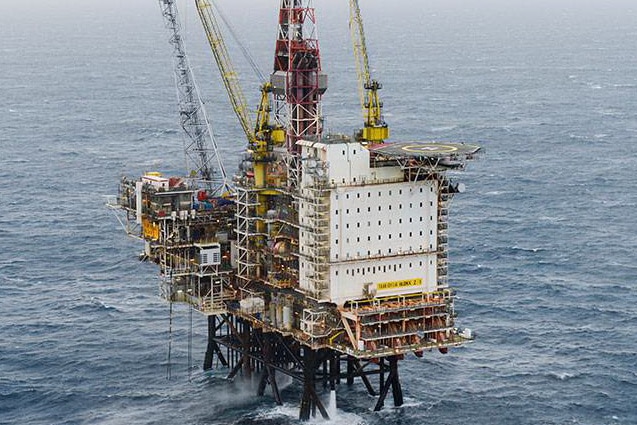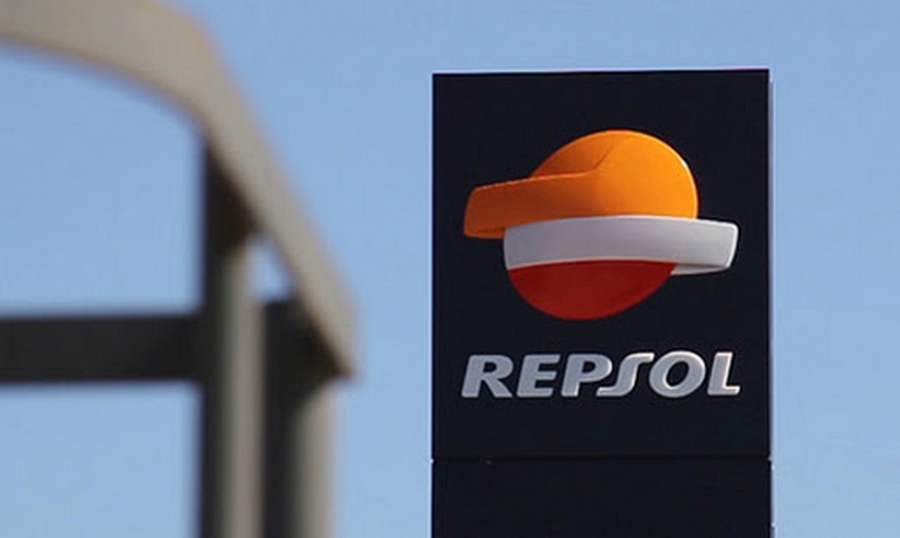Repsol is a Spanish multinational energy and petrochemical company headquartered in Madrid, Spain.It is engaged in worldwide upstream and downstream activities. In the 2022 Forbes Global 2000, Repsol was ranked as the 320th-largest public company in the world. As of 2022, it has 24,000 employees worldwide. In this article, we’ll delve deeper into Repsol’s history and key operations across the world and especially, Latin America.
Here are some of the things that Repsol does:
- Explores for and produces oil and gas
- Refining oil into gasoline, diesel, jet fuel, and other products
- Distributes and markets fuels and other energy products
- Manufactures petrochemicals
- Generates electricity
- Trades energy commodities
- Owns and operates service stations
Repsol is committed to sustainability and is working to reduce its carbon emissions. The company has set a goal of becoming carbon neutral by 2050.
Repsol is a leading player in the global energy industry. It is committed to providing energy solutions that are safe, reliable, and sustainable.
History of Repsol: From Merger to Global Energy Leader
Repsol’s history is rooted in the merger of two significant Spanish energy companies, Instituto Nacional de Hidrocarburos (INH) and Campsa, in 1987. This merger laid the foundation for Repsol as a leading integrated energy company. Let’s explore the key milestones and developments in Repsol’s history:
Formation and Expansion (1987-1990s):
The merger of INH and Campsa created Repsol, initially known as Repsol-YPF. The newly formed company became the dominant player in Spain’s oil and gas sector. In the late 1980s and early 1990s, Repsol embarked on an expansion strategy, acquiring various companies to strengthen its position in the international market. Notable acquisitions during this period include acquiring Petronor, a Spanish refinery, and expanding operations in Latin America through the acquisition of Argentine company YPF.
Privatization and International Expansion (1990s-2000s)
In the 1990s, the Spanish government began the privatization process of Repsol, gradually reducing its stake in the company. This allowed Repsol to operate with greater flexibility and pursue international growth opportunities. Repsol expanded its operations in Latin America, particularly in Argentina and Brazil, through partnerships and acquisitions. The company established a significant presence in exploration and production activities, focusing on offshore projects.
Integration of YPF and Transformation (2006-2012)
Repsol took a major step in 2006 by acquiring the remaining shares of YPF, an Argentine energy company, and merging it fully into the Repsol group. This move consolidated Repsol’s presence in Argentina, a country with significant oil and gas reserves. However, in 2012, the Argentine government expropriated YPF, resulting in Repsol’s loss of control over the company.
Focus on Upstream and Downstream Operations (2010s)
In the 2010s, Repsol refined its strategic focus, aiming to become a more integrated energy company. The company divested some non-core assets to strengthen its financial position and concentrated on its upstream exploration and production activities, refining and marketing operations, and chemical business. Repsol optimized its refining portfolio, increasing the efficiency of its refining facilities and enhancing its product offering.
Commitment to Renewable Energy (2010s-present)
As the world embraced the transition towards cleaner and sustainable energy sources, Repsol embarked on a journey to diversify its energy portfolio. The company made substantial investments in renewable energy projects, such as wind farms and solar installations. Repsol aims to play a significant role in the renewable energy sector, aligning its operations with the global shift towards a low-carbon future.
Net-Zero Emissions and Sustainability (2016-present)
In 2016, Repsol made a groundbreaking commitment by becoming the first oil and gas company to commit to achieving net-zero emissions by 2050. This ambitious goal reflects Repsol’s dedication to sustainability and mitigating the effects of climate change. The company implemented a comprehensive sustainability strategy, focusing on reducing its carbon footprint, increasing energy efficiency, and investing in low-carbon technologies.
Research and Innovation
Repsol recognizes the importance of research and innovation in driving its operations and remaining at the forefront of the energy industry. The company invests significantly in research and development, collaborating with universities, research institutions, and technology startups. Repsol’s R&D efforts focus on improving operational efficiency, developing cleaner energy solutions, and exploring emerging technologies to meet future energy demands sustainably.
Repsol’s history is marked by mergers, acquisitions, international expansion, and a strategic shift towards sustainability and renewable energy. From its formation through the merger of INH and Campsa to its present-day position as a global energy leader, Repsol has demonstrated adaptability, resilience, and a commitment to shaping the future of the energy industry. Through its ongoing efforts in innovation, sustainability, and research, Repsol continues to play a pivotal role in meeting the world’s energy needs while addressing the challenges of a rapidly changing world.
Key operations of Repsol
Repsol is a multinational energy company based in Spain, with operations spanning across the entire energy value chain, including exploration, production, refining, distribution, and marketing of a wide range of energy products. Here are the key operations of Repsol explained in detail:
Exploration and Production

Repsol is actively involved in the exploration and production of oil and gas resources. The company searches for potential reserves of hydrocarbons in various regions worldwide, both onshore and offshore. This includes conducting geological and geophysical surveys, drilling wells, and evaluating the feasibility and profitability of potential reserves.
Repsol produces 572,000 barrels of oil on average per day. It has1.916 billion barrels of proven reserves and 70% of Repsol’s proven reserves are gas.
Repsol has exploration and production activities in several countries, including Spain, Brazil, the United States, and various regions in Africa and Asia.
Refining and Petrochemicals
Repsol operates refineries where crude oil is processed into refined petroleum products such as gasoline, diesel, jet fuel, and lubricants. The refining process involves distillation, cracking, and other complex chemical processes to transform crude oil into various end products. Repsol also has petrochemical facilities that produce a wide range of chemical products derived from hydrocarbons, including plastics, solvents, and synthetic fibers.
Repsol Group possesses and manages refineries in Spain, including Cartagena, A Coruña, Bilbao, Puertollano, and Tarragona, as well as one in Peru. Their combined refining capacity exceeds one million barrels per day.
In addition to oil and gas derivatives, Repsol engages in the production of aviation biofuel derived from waste and biomass.
Marketing and Distribution
Repsol markets and distributes its refined petroleum products through a network of service stations, both under its own brand and through partnerships with other companies. These service stations provide fuel for automobiles, trucks, and other vehicles. Repsol also supplies fuel to industrial customers, such as airlines, shipping companies, and power plants. Additionally, Repsol operates a lubricants business, selling various types of lubricating oils and greases.
Repsol, CAMPSA, and Petronor market their products through an extensive network of outlets, totaling more than 6,900 locations. Among these, over 6,500 are service stations spread across Europe and Latin America. Repsol holds a prominent position as a global distributor of LPG, both in bottled and bulk forms, and is the leading company in Spain and Latin America in this sector.
Natural Gas
Repsol is a major player in the natural gas industry. The company is involved in the exploration and production of natural gas, both from conventional and unconventional sources, such as shale gas. Repsol has invested in liquefied natural gas (LNG) facilities, which involve the cooling and compressing of natural gas for transportation and storage. Repsol also participates in the distribution and marketing of natural gas, supplying it to residential, commercial, and industrial customers.
Renewable Energy
In recent years, Repsol has been increasingly focusing on renewable energy sources as part of its commitment to sustainability and reducing carbon emissions. The company is involved in the development, construction, and operation of renewable energy projects, particularly in the areas of wind and solar power. Repsol aims to expand its renewable energy portfolio and has set targets to increase its renewable energy capacity over the coming years.
Repsol holds a significant position in Spain’s electricity generation sector. As of December 31, 2021, their operational low-carbon and renewable energy capacity amounts to 3,738 MW. This comprises 693 MW from hydroelectric and pumping plants, 1,625 MW from combined cycle plants, 600 MW from cogeneration plants, 430 MW from wind power, and 390 MW from solar photovoltaic installations.
Research and Development
Repsol emphasizes research and development activities to enhance its operations, improve energy efficiency, and develop innovative technologies. The company invests in projects aimed at reducing environmental impact, increasing the use of renewable energy sources, and improving the efficiency of its processes. Repsol collaborates with academic institutions, research centers, and industry partners to drive technological advancements and find sustainable solutions for the energy sector.
Overall, Repsol’s key operations involve exploring and producing oil and gas resources, refining and petrochemical production, marketing and distribution of energy products, involvement in the natural gas sector, expansion into renewable energy, and ongoing research and development efforts.
Also Read: Valero Energy: A Leader in Energy Innovation, Sustainability, and Growth
To read more content like this, subscribe to our newsletter
Go to the full page to view and submit the form.

